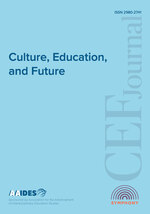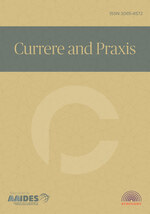Archiving Policy
Digital Preservation and Archiving
The full text of all articles is deposited in CLOCKSS, LOCKSS and PKP Preservation Network (PN) around the world to guarantee long-term digital preservation.
The editor(s) ensures that published material is securely archived. Professional Capital in Education (PCE) sends the articles it publishes to electronic archives and makes them available for full access on an open-access basis without the need for any action by the author(s). All articles are published under the CC BY 4.0 license, allowing for both non-commercial and commercial use with proper attribution.
PCE undertakes to keep all its articles open access under the Creative Commons Attribution 4.0 International (CC BY 4.0) License and to store the full-text content on archive platforms and on the website https://journals.symphonypub.com/index.php/pce/issue/archive
General Archiving Rights
- Authors can download and share PDF copies of their articles with colleagues without any embargo restrictions
- All archiving activities must include proper attribution and citation of the original published source
- Both non-commercial and commercial use are permitted under the CC BY 4.0 license terms
Self-Archiving Policy by Version
The publisher of PCE (E-ISSN: XXXX-XXXX) supports the dissemination of research results through the following self-archiving policies:
Published Version (Final PDF)
- Authors may use the final published version (publisher PDF) for self-archiving on personal websites and institutional repositories immediately after publication
- Published articles may be deposited in public and/or commercial subject-based archives with no embargo period
- Proper citation of the published source and a link to the journal homepage or article DOI is required
Accepted Manuscript (Post-Print)
- Authors may self-archive the accepted manuscript version immediately after acceptance
- Accepted manuscripts may be deposited in institutional repositories, personal websites, and subject-based archives
Submitted Manuscript (Pre-Print)
- Authors may archive submitted manuscript versions in preprint servers and institutional repositories
- Authors should update preprint records with publication information once the article is published
Long-Term Preservation
PCE ensures the long-term accessibility and preservation of published content through multiple digital preservation systems:
LOCKSS (Lots of Copies Keep Stuff Safe)
PCE uses the LOCKSS system to create permanent archives. Based at Stanford University Libraries, the LOCKSS Program provides libraries and publishers with award-winning, low-cost, open-source digital preservation tools. The system operates on the principle of distributed preservation, where multiple libraries worldwide maintain synchronized copies of journal content.
CLOCKSS (Controlled LOCKSS)
CLOCKSS provides additional security through a geographically distributed network of redundant archive nodes. This system ensures that if the journal becomes unavailable from the publisher, the archived content will be automatically released for free public access, guaranteeing perpetual availability of scholarly content.
PKP Preservation Network (PKP PN)
The PKP Preservation Network offers an additional layer of digital preservation specifically designed for OJS journals. This distributed preservation network ensures that journal content is safely stored across multiple geographic locations and institutional partners.
Preservation Guarantee
Through these multiple preservation systems, PCE guarantees that all published articles will remain accessible to the scholarly community in perpetuity, even in the event of publisher discontinuation or technical failures. Our multi-tier preservation strategy ensures redundancy and long-term access to the scholarly record.
Technical Information
Publication Type: Open Access
E-ISSN: XXXX-XXXX
Open Access License: CC BY 4.0
Copyright Holder: Authors
Publisher: Symphony
Embargo Period: None
Archive Access Points
OAI: https://journals.symphonypub.com/index.php/pce/oai
LOCKSS: https://journals.symphonypub.com/index.php/pce/gateway/lockss
CLOCKSS: https://journals.symphonypub.com/index.php/pce/gateway/clockss
RSS: https://journals.symphonypub.com/index.php/pce/gateway/plugin/WebFeedGatewayPlugin/rss2
Author Identifiers
ORCID: PCE requires ORCID IDs to be included in the article metadata. ORCID ID is an alphanumeric code that uniquely identifies authors.
ROR ID: PCE uses the Research Organization Registry Identifier (ROR ID). ROR ID is an open, sustainable, usable, and unique institution number registry for every research institution in the world.









